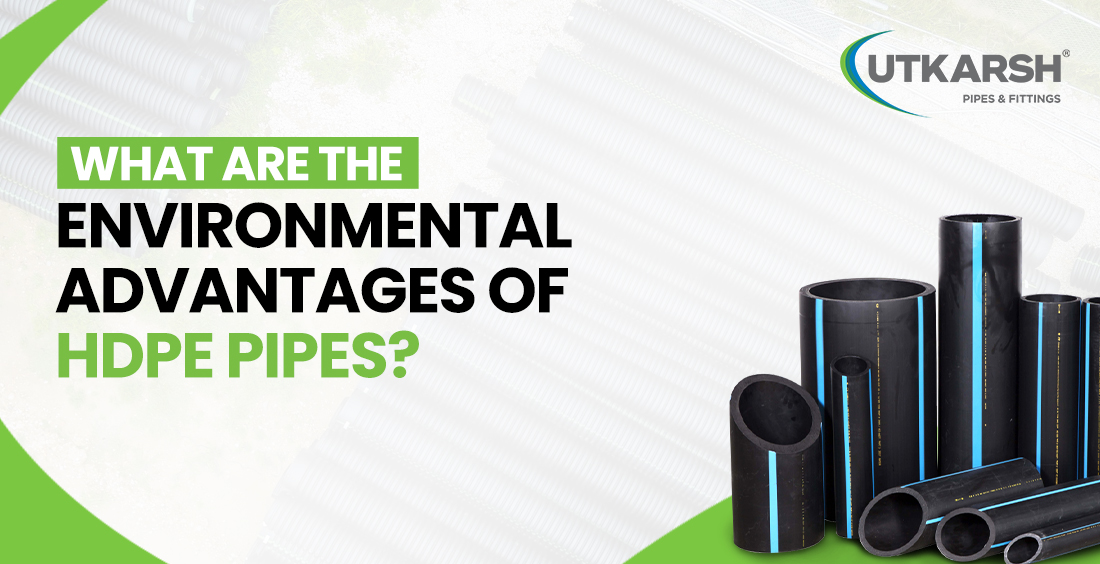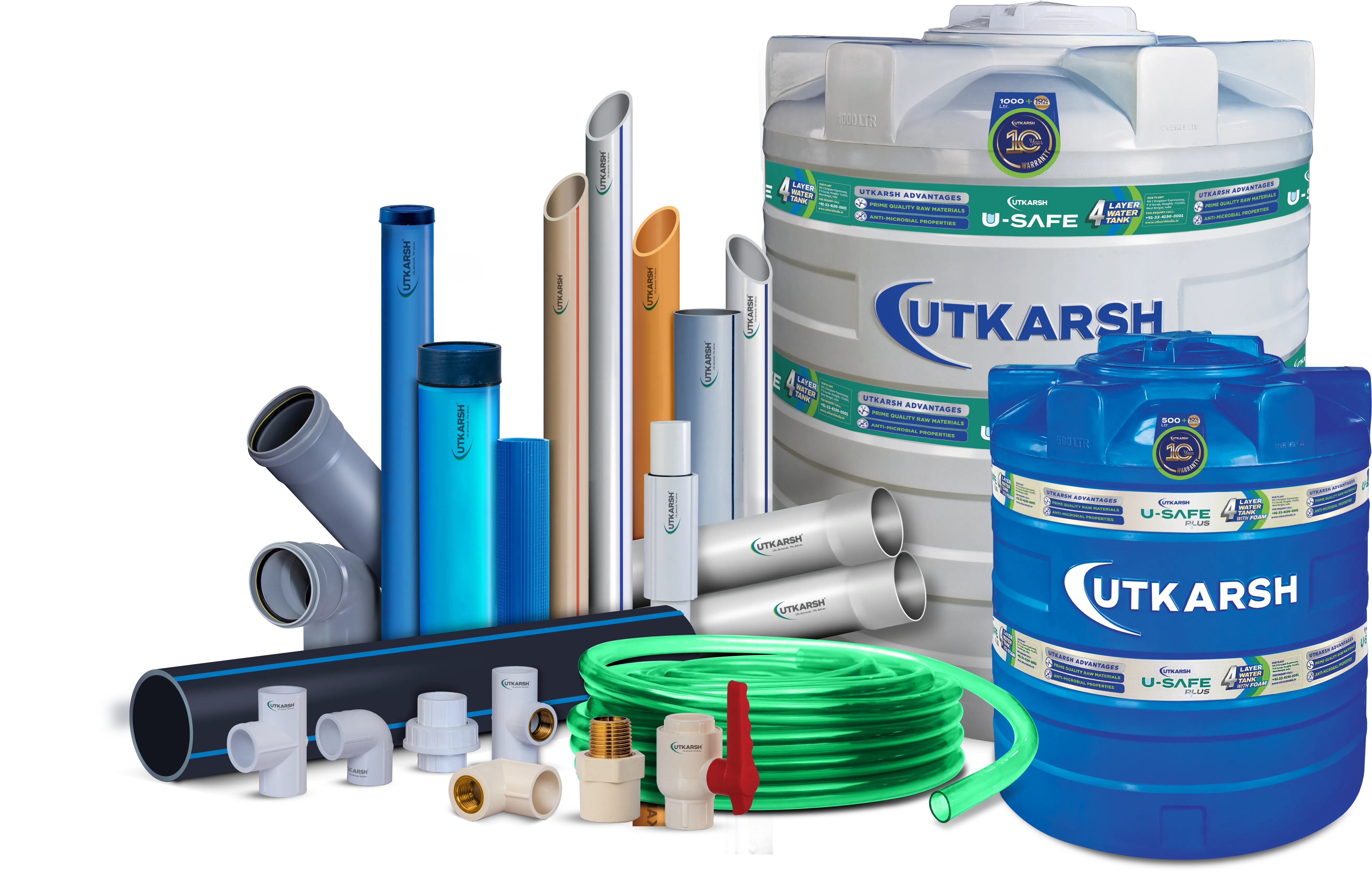What Are the Environmental Advantages of HDPE Pipes?

Eco-friendly infrastructure is not just a trend; it is a necessity in today’s development landscape. Among modern piping solutions, HDPE (High-Density Polyethylene pipes) offers a powerful combination of durability, sustainability, and performance. Known for their durability, efficiency, and eco-friendly performance, these pipes are widely used in various areas to function. This is the go-to choice for water supply, sewage, irrigation, and industrial applications.
This blog explores the environmental advantages of HDPE pipes, shedding light on how they support sustainable development goals, reduce ecological impact, and promote cleaner resource management. Whether you are a contractor, an engineer, or a decision maker in a project. This article will help you to understand why HDPE pipes are the smarter, greener alternative in today’s market.
Built For Sustainability: How HDPE Pipes Make a Difference
Leak Free Performance: One of the biggest benefits of using HDPE pipes is their ability to create a leak-proof system; the fusion welding between the pipe joints is completely sealed. Unlike other pipes, which depend on mechanical fittings that loosen or leak over time.
Corrosion-free: Compared to traditional pipes, rusting and scaling, or reacting with chemicals in the water and soil. HDPE products avoid all of that. They don’t corrode or degrade, even in tough times or rough environmental conditions.
Long-term Durability: HDPE pipes are engineered for a service life ranging from 50-100 years, depending on operating conditions such as temperature and chemical exposure. This exceptional longevity significantly reduces the need for frequent replacement, minimizing lifecycle cost and environmental impact.
Low Carbon Footprint: HDPE pipes are highly energy efficient across their entire lifecycle, from manufacturing to on-site installation. Their lightweight nature makes them easier to transport and the production process uses less energy. Unlike conventional material, HDPE requires less energy to produce its lower melting points and streamlined fabrication process.
Reduced Maintenance is Equal to Lower Environmental Impact
Frequent repairs and replacements not only increase project cost but also cause unnecessary disruption to the environment, such as soil disturbance, traffic blockages, and resource wastage. HDPE pipes' durability and flexibility require minimal intervention over decades. For both public utilities and private infrastructure developers, less strain on the environment and more cost-effective project planning. Making them a practical and eco-conscious choice for both public and private projects.
Why Industry Leaders Trust Utkarsh Pipes
Backed by five decades of market presence, Utkarsh HDPE Pipes and Fittings is a preferred choice for contractors, EPC companies, government projects, and infrastructure developers. Our focus on innovation, eco-conscious manufacturing, and client-centric service sets us apart from the crowd.
Utkarsh Pipe’s Key Features:
BIS-certified Products
Environmentally friendly production process
Customised HDPE pipe solution
Trusted by suppliers and consumers
In Conclusion
HDPE pipes offer far more than just fluid transportation; they deliver a sustainable, long-term solution for modern infrastructure. Their environmental advantages include leak-proof performance, low energy consumption, corrosion resistance, and recyclability, making them a superior alternative to conventional piping materials. Partnering with Utkarsh Pipes and Fittings to build greener, smarter, and more resilient systems for the future.
FAQ:
Are HDPE pipes recyclable after use?
Yes, HDPE pipes are 100% recyclable. Once they fully utilise the lifeline, they can be reprocessed. This helps reduce plastic waste and supports circular economy practice, making it an environmentally responsible choice.
How do HDPE pipes reduce water wastage?
HDPE pipes' key advantage is the use of fusion welding to form leak-proof joints. This seamless jointing technology eliminates the common leakage issues found in the conventional piping system. Unlike a traditional piping system.
What makes HDPE pipes better than PVC or GI pipes?
HDPE pipes outperform PVC and GI pipes in terms of recyclability, joint integrity, and lifecycle energy consumption. Unlike GI don’t rust, and PVC don’t release harmful chemicals during disposal.












